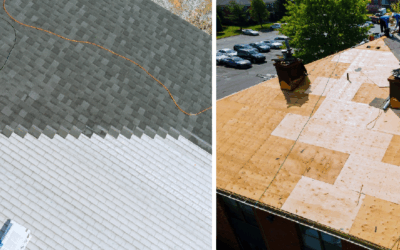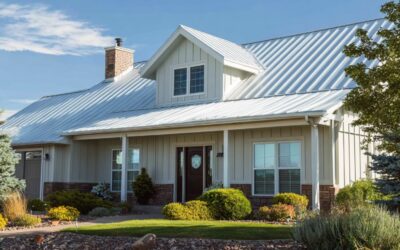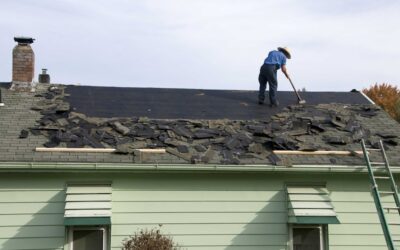The Ultimate Guide to Roofing Warranty: Protect Your Investment and Peace of Mind
When investing in a new roof or repairing an existing one, one of the most important factors to consider is the roofing warranty. A roofing warranty protects you against defects, premature failure, and unexpected repair costs. It provides peace of mind that your new roof will perform as promised by the manufacturer and the installer.
But what exactly is a roofing warranty? How does it work? What types of warranties exist? How long do they last? What should homeowners look out for? And how do you make sure you don’t void your warranty?
In this ultimate guide, we’ll answer these questions and much more. Whether you’re a homeowner planning a roof replacement, a property manager overseeing multiple buildings, or simply curious about roofing warranties, this article will help you understand everything you need to know to make an informed decision.
What Is a Roofing Warranty?
A roofing warranty is a written guarantee from a manufacturer or roofing contractor that promises to repair or replace certain components of your roof if they fail within a specified period. It’s essentially a legal agreement that outlines the coverage, limitations, and duration of the roof’s protection.
Why Are Roofing Warranties Important?
Roofs are a significant investment, often costing thousands or tens of thousands of dollars. They protect your home from weather elements, increase curb appeal, and contribute to energy efficiency. Because of the cost and importance, a roofing warranty is your safeguard against faulty materials, poor workmanship, or unexpected damage.
Without a warranty, you may be fully responsible for any repairs or replacements that arise, which could be very expensive. Warranties transfer some of that risk from you to the manufacturer or contractor.
Types of Roofing Warranties
When it comes to roofing warranties, there are primarily two types you should understand:
1. Manufacturer’s Warranty
This warranty comes from the roofing material manufacturer and guarantees the performance of the roofing product itself, such as shingles, metal panels, or membranes.
- What it Covers: Defects in materials like premature wear, cracking, or color fading.
- Typical Length: 20 to 50 years, depending on the product and manufacturer.
- Limitations: Usually does not cover labor or installation issues, only material defects.
2. Workmanship Warranty (Contractor’s Warranty)
This warranty is provided by the roofing contractor who installs the roof. It guarantees the quality of the installation and workmanship.
- What it Covers: Installation errors like improper nailing, flashing errors, poor sealing, or ventilation issues.
- Typical Length: 1 to 10 years, sometimes longer if the contractor offers extended coverage.
- Limitations: Usually does not cover material defects.
Understanding the Differences Between Manufacturer and Workmanship Warranties
It’s important to distinguish between these two warranties because they cover very different things.
- If your shingles start to curl, crack, or blister due to manufacturing defects, you would file a claim with the manufacturer.
- If your roof leaks because of improperly installed flashing or ventilation, you would pursue the contractor for repairs under their workmanship warranty.
Many roofing projects come with both warranties. This dual protection is ideal but always ask your contractor for the details.
Types of Manufacturer Roofing Warranties
Even manufacturer warranties come in different forms. Here are the most common:
1. Limited Warranty
The most common type of roofing warranty, a limited warranty covers defects but with specific limitations and conditions.
- Coverage: Only certain defects or failure modes.
- Pro-rated: Often pro-rated, meaning the payout decreases over time. For example, if you have a 30-year warranty and your roof fails in year 10, you may only get partial reimbursement.
- Exclusions: Damage from hail, wind, improper maintenance, or accidents usually aren’t covered.
2. Non-prorated (Full) Warranty
A full or non-prorated warranty pays the full cost of replacement or repair regardless of the age of the roof.
- Coverage: Material defects fully covered for the warranty period.
- Rarity: These warranties are less common and usually only available on premium products.
- Benefit: Offers peace of mind knowing you won’t pay out of pocket if materials fail early.
3. Extended or Enhanced Warranty
Some manufacturers offer extended warranties for an additional cost or under certain conditions (like professional installation by a certified contractor).
What Does a Workmanship Warranty Typically Cover?
Workmanship warranties vary greatly depending on the roofing company but generally cover:
- Proper installation of shingles, underlayment, and flashing
- Secure fastening of roofing materials
- Proper sealing to prevent leaks
- Adequate ventilation to avoid premature wear
- Correct installation of roof vents, gutters, and accessories
How Long Does a Roofing Warranty Last?
The length of roofing warranties depends on several factors:
| Warranty Type | Typical Duration |
|---|---|
| Manufacturer Limited | 20 to 50 years |
| Manufacturer Full | 20 to 50 years (rare) |
| Contractor Workmanship | 1 to 10 years (some longer) |
| Extended Warranty | Varies, sometimes up to 50 years |
Keep in mind that many warranties have specific conditions that must be met to remain valid throughout the entire duration.
What Is NOT Covered by Roofing Warranties?
Most roofing warranties have important exclusions. Understanding these can save you from surprises later.
- Normal wear and tear caused by weather exposure
- Damage caused by acts of God (e.g., hurricanes, tornadoes, earthquakes)
- Improper maintenance or neglect by the homeowner
- Structural issues with the roof deck or building
- Leaks caused by clogged gutters or poor drainage
- Damage caused by walking on the roof or other physical abuse
- Color fading or cosmetic changes
- Repairs made by unauthorized contractors (voids warranty)
- Roof modifications or additions after installation
How to Make Sure Your Roofing Warranty Stays Valid
1. Choose a Reputable Contractor
Always work with licensed, insured, and well-reviewed roofing contractors who offer workmanship warranties. Verify their credentials and ask for warranty details upfront.
2. Follow Manufacturer Guidelines
Roofing manufacturers have strict installation guidelines. Using a certified contractor who follows these guidelines is essential to keep the manufacturer warranty valid.
3. Keep Your Receipts and Documentation
Save all paperwork, contracts, warranties, and receipts. These documents are essential if you need to file a claim.
4. Perform Regular Maintenance
Routine inspections and maintenance can prevent problems that void warranties, such as leaks or damage from debris.
5. Avoid Unauthorized Repairs
Never try DIY repairs or use contractors not approved by the original installer. Unauthorized work can void your warranty.
How to File a Roofing Warranty Claim
If you notice issues with your roof, here’s how to proceed:
- Review your warranty: Understand what is covered and the claim process.
- Contact your roofing contractor: For workmanship issues, your contractor should inspect the roof.
- Contact the manufacturer: For material defects, reach out to the manufacturer directly or through your contractor.
- Document the problem: Take photos and keep detailed records of the damage.
- Schedule an inspection: A roofing professional will assess the claim and determine if it qualifies.
- Approval and repairs: If the claim is approved, repairs or replacement will be arranged.
Common Problems With Roofing Warranties
While warranties provide valuable protection, homeowners sometimes face challenges:
- Disputes about cause of damage: Is it workmanship or material defect?
- Pro-rated coverage leading to reduced reimbursement
- Limited coverage periods or exclusions
- Delays or denials in warranty claims
- Confusion over who is responsible for repairs
To avoid these problems, read your warranty carefully and maintain open communication with your contractor.
Tips for Homeowners: What to Ask About Roofing Warranties Before Installation
Before you commit to a roofing project, ask your contractor these key questions:
- What types of warranties come with this roof?
- What is the length and coverage of the manufacturer warranty?
- What does the workmanship warranty cover? How long does it last?
- Are there any conditions that could void the warranty?
- Can you provide the warranty in writing?
- What maintenance is required to keep the warranty valid?
- How are warranty claims handled?
- Do you offer any extended warranty options?
Real-World Examples: How Roofing Warranties Save Homeowners Money
Imagine a homeowner in Northeast Ohio whose roof begins leaking five years after installation. Without a workmanship warranty, they’d pay thousands out of pocket for repairs. But with a 10-year workmanship warranty, the contractor covers repairs at no cost, saving the homeowner significant expense.
Similarly, a commercial building owner experiences shingle granule loss due to a manufacturing defect. The manufacturer’s material warranty reimburses the cost of new shingles, avoiding costly replacements.
Does Your Roofing Warranty Cover Financing?
Some roofing companies offer financing options for new roof installations. Certain warranties may require that you finance through approved lenders to qualify for extended coverage or additional protection plans.
Final Thoughts: Don’t Overlook Your Roofing Warranty
A roofing warranty is more than just a piece of paper — it’s your protection against unexpected costs and headaches. It guarantees that your investment is secure and your
roof will perform as expected.
When choosing a roofing contractor and materials, always consider the warranty as a major factor. Ask questions, read the fine print, and make sure you understand what is covered and for how long.
Why Choose S&K Construction And Remodeling LLC for Your Roofing Needs?
At S&K Construction And Remodeling LLC, serving Northeast Ohio and surrounding areas, we pride ourselves on quality roofing services backed by comprehensive warranties. As an Owens Corning Preferred Contractor, we offer manufacturer-backed warranties on top-rated roofing products plus a workmanship warranty to ensure your roof lasts for decades.
We provide transparent estimates, detailed warranty information, and excellent customer service. Our experienced team handles everything from inspections to installation, with financing options available to fit your budget.
Contact us today to schedule a free roofing consultation and learn how our roofing warranties give you confidence and peace of mind.
 (440) 307-2060
(440) 307-2060




